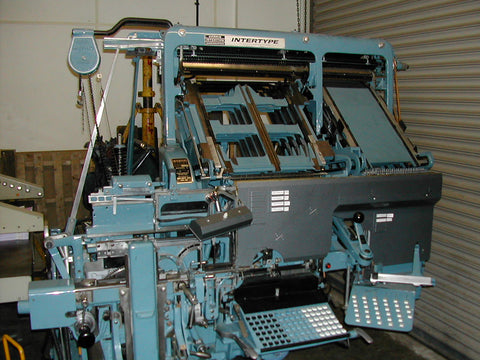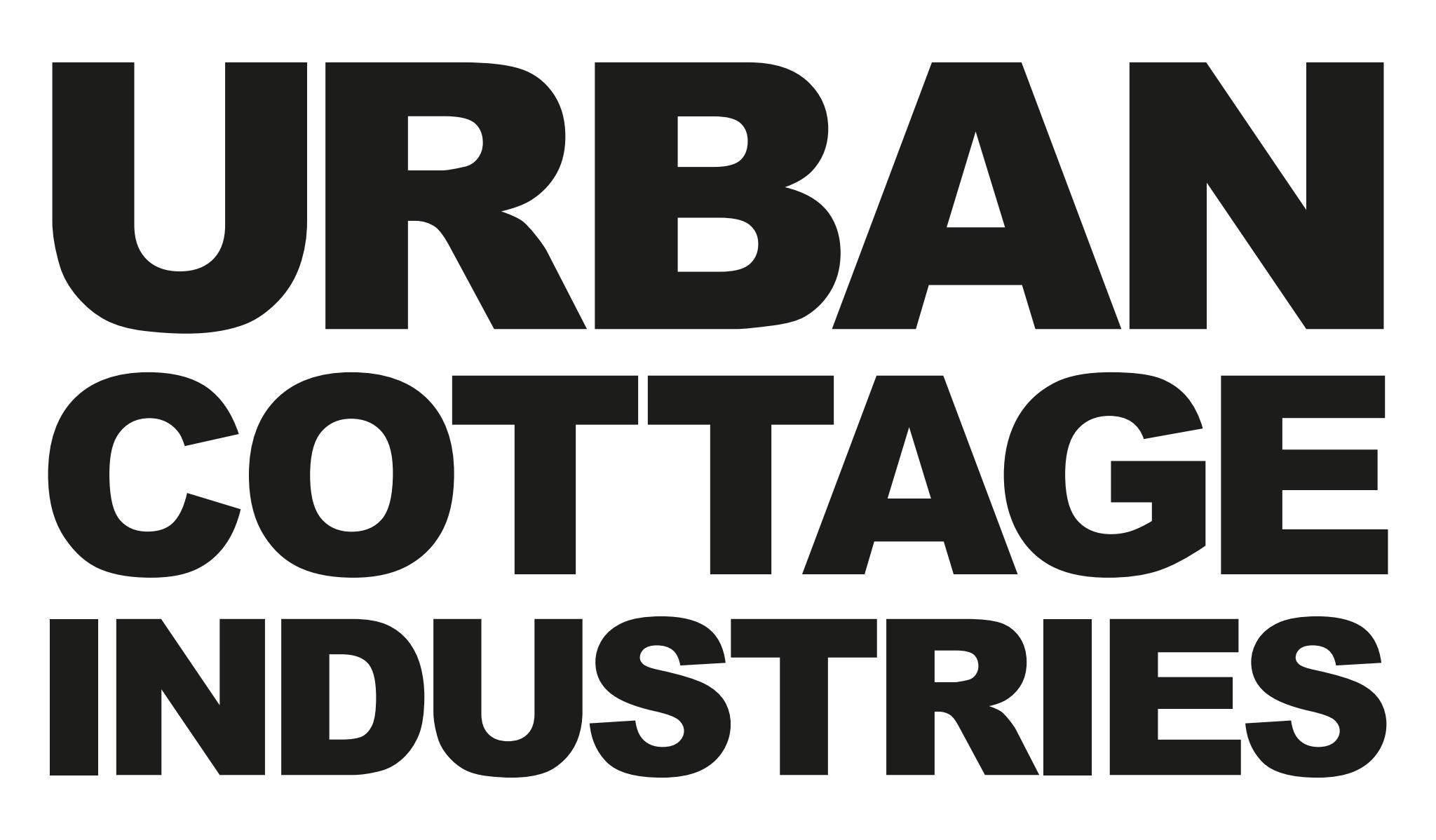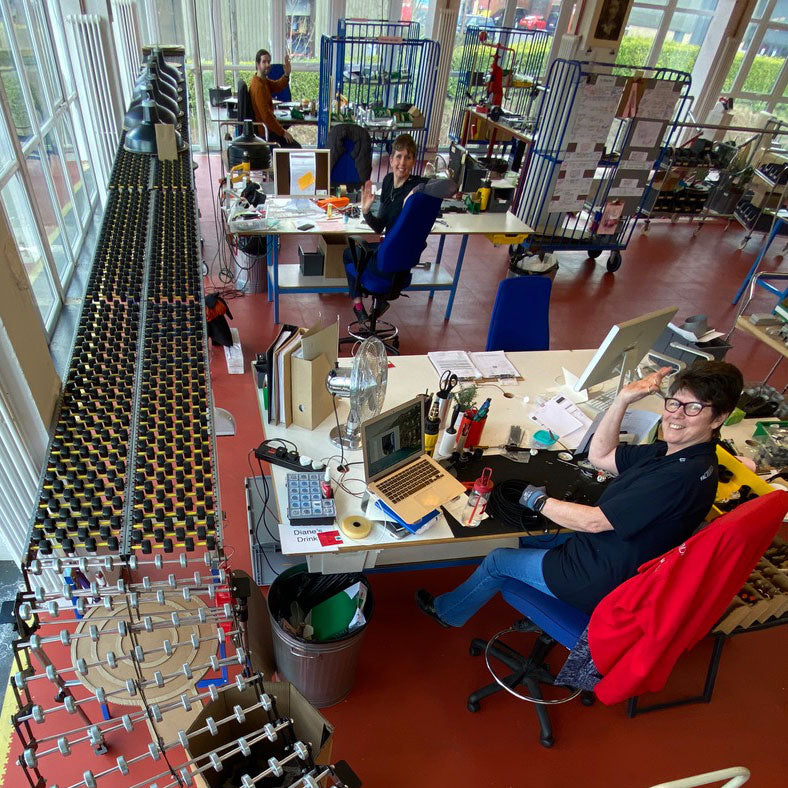
If you landed on this page, you're probably expecting to see Prelogram print (notebooks, cards, posters, art) and are wondering where it is?
Short answer:
Prelogram is 'switched off' at least for now, sorry!
Long answer:
The lighting side of our business (the architectural / technical side) began to experience growth and we had to get serious about managing that opportunity. We've always been circular economy specialists, but interest in this area of the lighting market is growing rapidly
Prelogram History:
I'm Stanley Wilson, I was a big part of Prelogram, here is some history incase you're interested.
From the early 2000's until about 2020 the company (Urban Cottage Industries Ltd.) was split between lighting (Factorylux) and analogue printing (Prelogram). We were young and ambitious and believed we could easily do two things at once (spoiler: we were wrong) Prelogram was a crazy and brilliant trip 😀.
The roots of Prelogram trace way back when, as a youngster, I discovered the power of rubber stamps and coloured inks to mass produce CD's in the redundant textile factory I lived in (the same space where Factorylux also began life).

The band took me from West Yorkshire to East London (Dalston), which was beginning to explode with the mad energy it later became very famous for. It was here I met my co-founder and now my partner in every way possible, Sophie (we lived on the same street, her flat flooded and she moved in 'for a few days') who introduced me to the then unknown but now legendary designer James Hurst who in turn introduced us to screen printing via Kate & Fred at Print Club (also Dalston). James helped us to develop this poster with translations by artist Hiraki Sawa (also Dalston!) another amazing person we met around this time, you couldn't move for amazing people in Dalston back then.

We needed to print faster and smaller than screen printing allowed but wanted the same 'analogue' flavour, like many such inky-fingered people, we discovered letterpress via an old Adana 8 inch x 5 inch hand press which we began using to transform redundant cereal box packaging into eye catching business cards (business cards!?) from the one bed flat in Dalston that we now shared.


We soon outgrew our little press and, after a painful false start with an 'Arab' treadle press (ouch!), we felt very lucky to happen across David & Carol at Airedale Products Ltd. in the Halifax (where I am from) Yellow Pages (Yellow Pages!?) who were letterpress experts, with a fine collection of Heidelbergs, plus the worlds largest collection of Linotype / Intertype linecasting machines 🤯. These machines had been acquired as newsprint went digital and redeployed to personalise MILLIONS of stationary products: 'your name on a pencil' was a very common product when I was a kid and it turned out they'd all been made by Airedale!
Die-cutting and linecasting work soon began to appear in the products we developed, as you can see in this Christmas card from 2012-ish I think.

and we also helped finance the crowdfunded movie 'Linotype The Movie', by Douglas Wilson and hired Hebden Bridge cinema to screen it on release!

That's our original Adana 8x5 in the picture (yes we took it to the cinema!)

The lighting side of the business grew very quickly - we were the first people to develop and sell a range of filament lightbulbs in the UK - and around 2010 we took over a former trouser factory just down the road from David & Carol. It was much bigger than we really needed and to better utilise the space, we bought out Airedale and relocated David, Carol and the vast collection of machinery under the same roof.


The global craze for Moleskine notebooks began around this time and our thoroughly modern 'your line of text debossed on a Moleskine' website, hooked up to our ancient traditional linecasting technology, became a wildly popular hack.



We also set about unpicking a future for the Heidelberg collection and turned to our old friends at Print Club,

it was a partnership that led to the absurdly large MC Motors party - we shipped actual Linotype and Heidelberg machinery down, Hot Chip DJ'd and the event was sponsored by Brewdog (a totally unknown brand back then!?)

We'd also hired the Rio Cinema in Dalston to screen 'Linotype The Film' again, as a warm up for the MC Motors party later the same evening.

Oh my days, that was a night to remember.

After this party, we worked with a former ARUP structural engineer to develop a steel exoskeleton for our favourite Intertype C4 machine, which made it easier to transport to various places over the next few years, such as our Clerkenwell Design week party at Look Mum No Hands. It was a good technical achievement and a lot of fun.


We went on to develop creative collaborations with Harriet Patterson and Retronaut among many other artists and designers.
For a time, we cared for 8 Intertype and 1 Ludlow type casters plus 5 Heidelberg windmills and a Heidelberg large format cylinder machine 😮

and we were managing cereal boxes collections with multiple schools in the area - industrial scale!

and continued to print things of beauty to support the lighting side, such as the "Natural Light In Architecture" collection of cards and posters we'd developed with Sharon Stammers & Martin Lupton at Light Collective.


As we developed a new and forensic approach to the phase out of plastics from all aspects of our existence, we couldn't ignore the fact that Moleskine type notebook covers are essentially a single use plastic 😬 .


Leave a comment
This site is protected by hCaptcha and the hCaptcha Privacy Policy and Terms of Service apply.